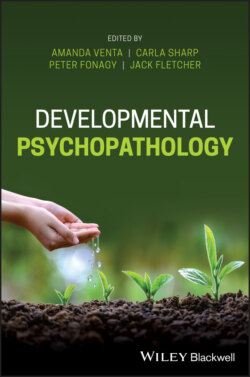Читать книгу Developmental Psychopathology - Группа авторов - Страница 55
The Family Context and Life Cycle Theory
ОглавлениеIn this section, we highlight how the family context and individual differences play an important role in predicting the development of psychopathology in children and adolescents. The family development theory classifies family and individual development according to developmental stages that encompass roles and tasks within the family dynamic over time. Duvall (1957) identified eight stages in this family life cycle: (1) beginning families, (2) childbearing families, (3) families with preschool children, (4) families with school children, (5) families with teenagers, (6) families as launching centers, (7) families in the middle years, and (8) aging families. There are other theories that classify the patterns of families based on different criteria; however, it is Duvall’s theory that has emerged as the most significant.
A major criticism of the family development theories is the assumption of universality, as they focused primarily on mid‐twentieth century, middle‐class, heterosexual, white families. Subsequent theories have attempted to address the complex challenges of parenting in a heterosexist society, and the unique experiences and perspectives of sexual minority parents. Further research within the field should attempt to address the increasingly diverse nature of individuals who comprise the family cycle.
